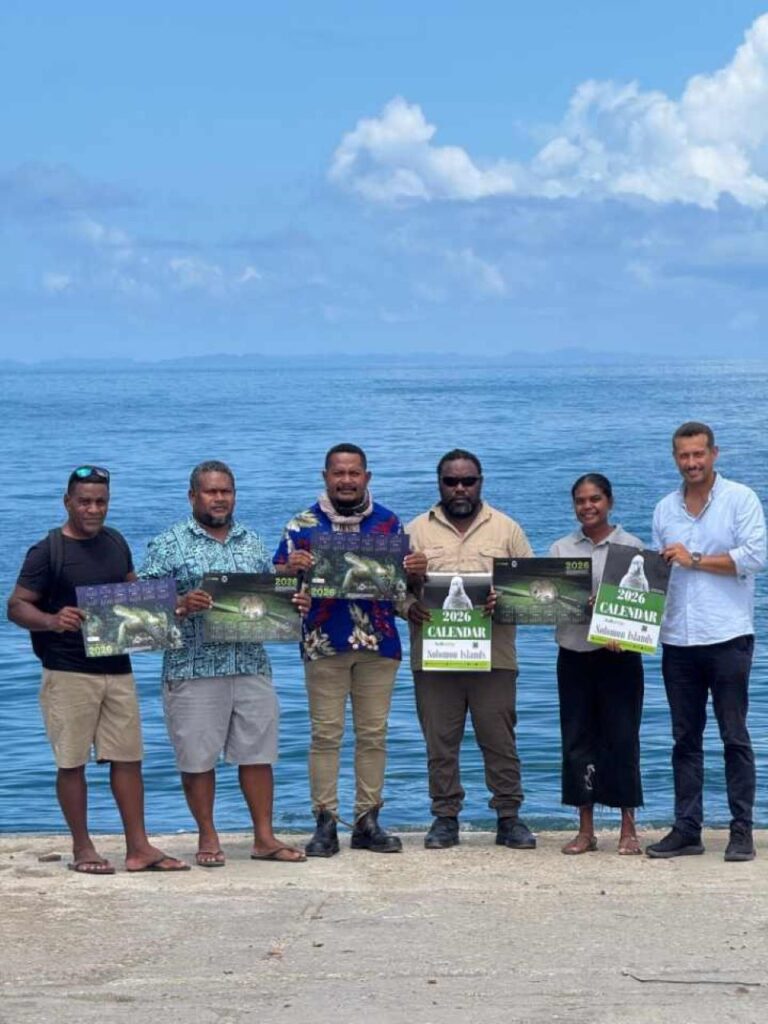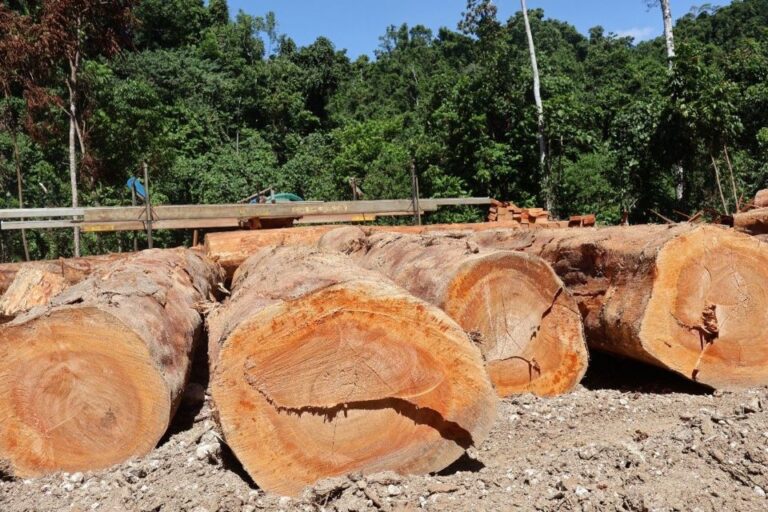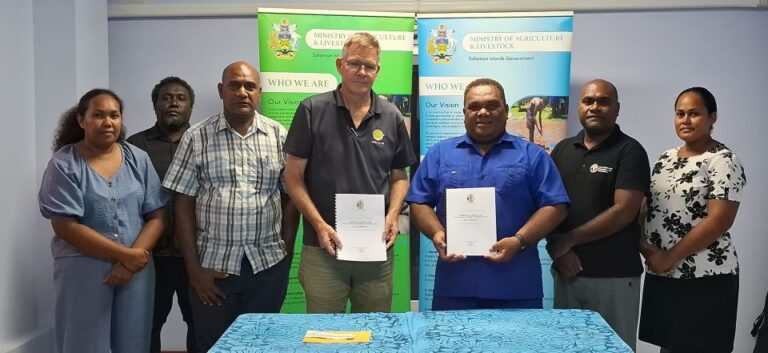BY JOHN CHRISMA (SUNDAY ISLES FREELANCER)
A quiet but intense gold rush is taking place on the banks of the Mamasa River in the center of Central Guadalcanal in the Solomon Islands.
Amid the lush greenery and soft sound of the running river, people from various provinces in the Solomon Islands, alongside local landowners, have converged to pan for gold. This new search is driven by a mix of necessity and the hope of striking it rich.
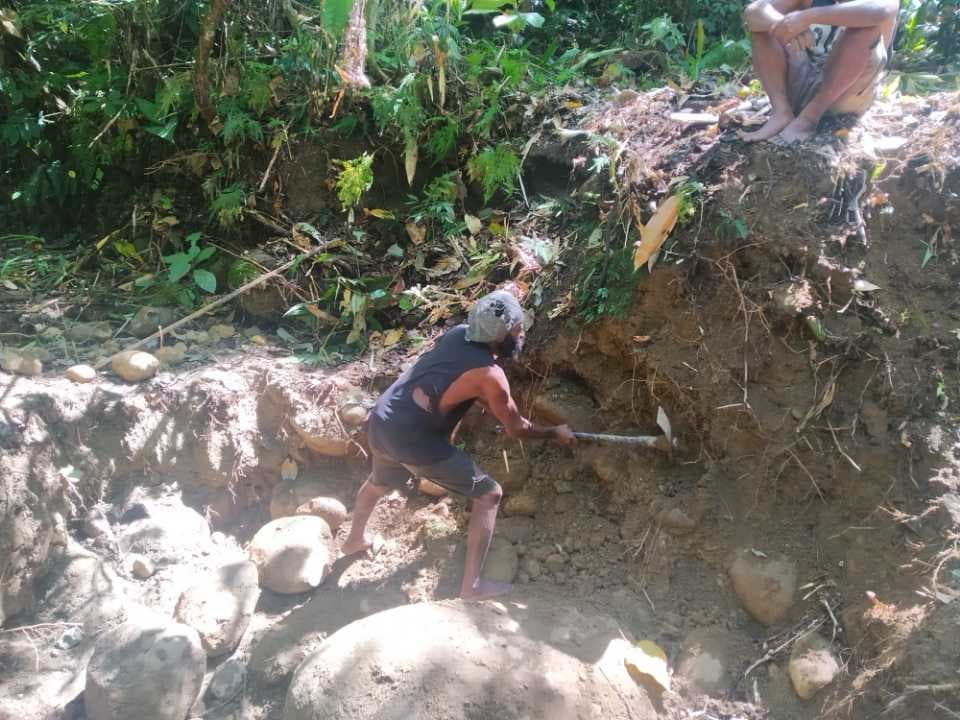
The recent visit to Mamasa River discovered a growing hotspot of diverse groups of individuals, each with their own story and motivation. The site up the river has now become an example of opportunity, with miners, whether local or from afar, carrying a unique story of hope, struggle, and spirit of unity to survive the high cost of living in the country.
Equipped with fuel-powered water pumps, carpet crushers, and hand tools like spades and crowbars, the local artisanal and small-scale mining (ASM) miners (comprised of families, men, women, and children) dig the riverbanks in search of gold. They are earning more money mining for themselves by engaging in gold panning daily.
Mrs. Kiipio, an elderly woman, said for those without water pump crushers, skill is key, and they often resort to using carpets (they lay carpets in the water, allowing the current to wash over a mixture of ground-up earth), which trap gold particles as water washes over them and are later ready to be retrieved (this method, though labor-intensive, has proven effective for many).
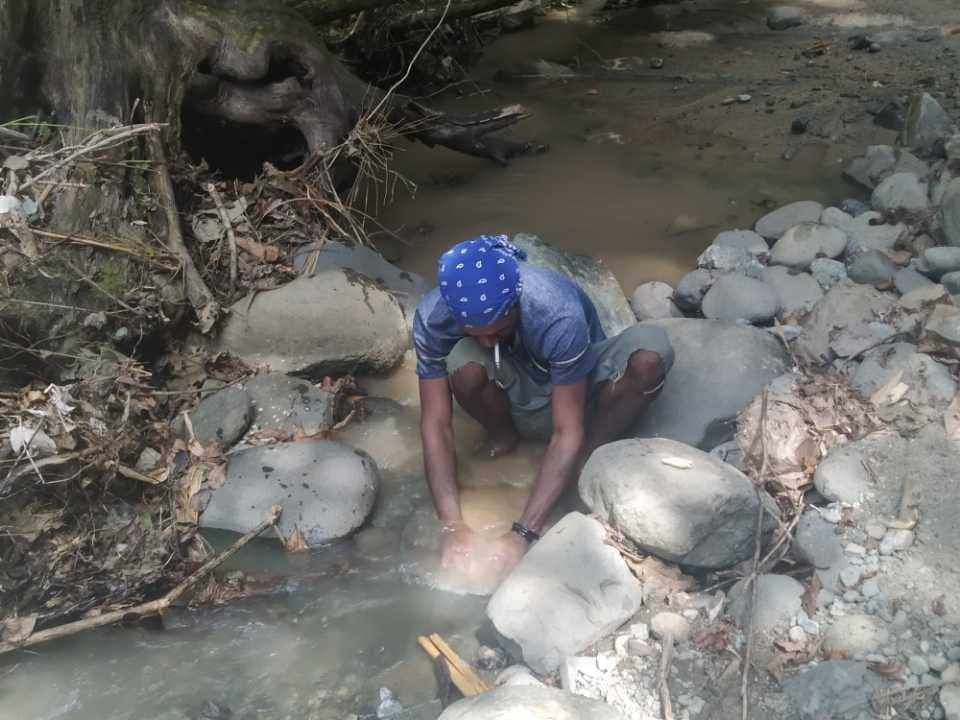
“We use these hand tools because we don’t have proper machines,” Mrs. Kiipio told SUNDAY ISLES.
Mrs. Kiipio shared that hardworking workers can extract four to five grams of gold daily using a water pump crusher, which they sell to local gold dealers for SBD 520 per gram, which is a substantial income by Solomon Islands standards.
“The attraction of gold has also appealed to an increasing number of gold buyers from town (Honiara). This flow in demand has intensified the rush, pushing more people to brave the challenging conditions in hopes of finding fortune.
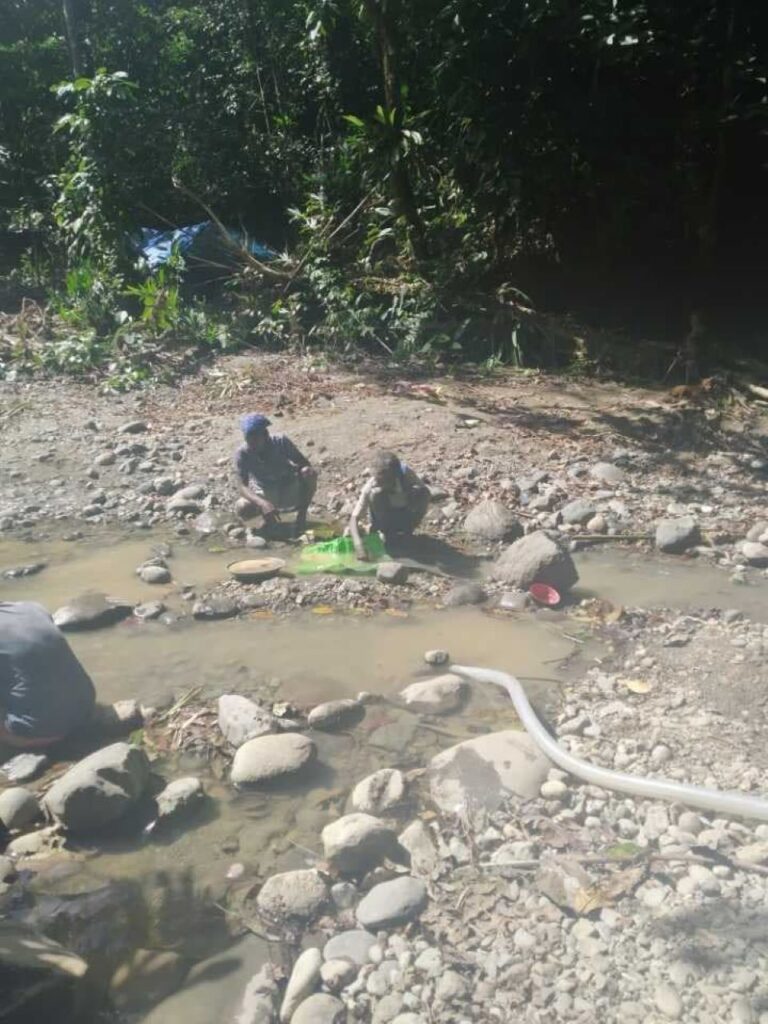
“So more people are digging out rocks and then panning it in the rivers or in other water sources, streams, and so on.
“Gold panning has become a vital source of income, especially after the giant African snail devastated our gardens,” she expressed.
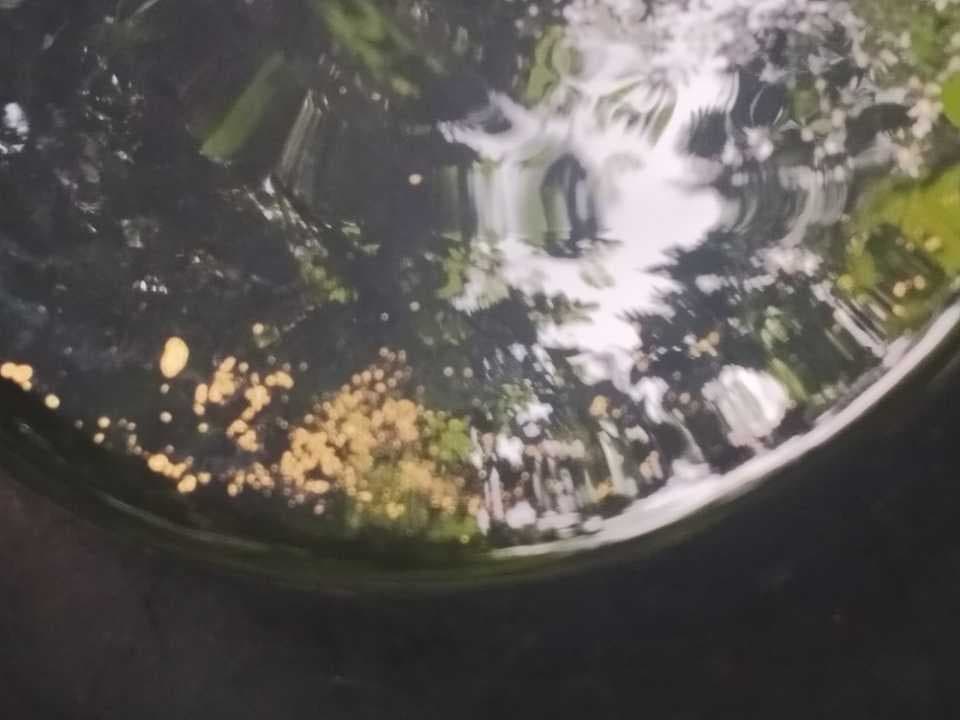
She said, interestingly, Chinese individuals have also been spotted drilling along the riverbanks, claiming to conduct research; their presence has raised questions among the local landowners.
“We were wondering why we saw some Chinese people drilling along this riverbank without our consent,” she said. “When we asked them, they said they were doing some kind of research.”


